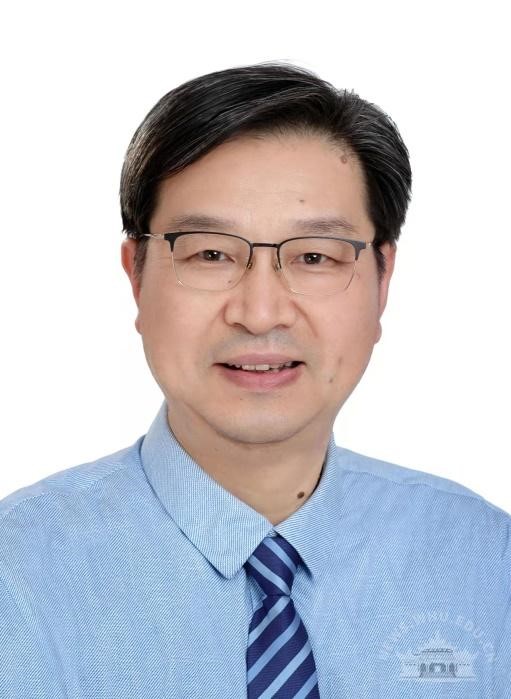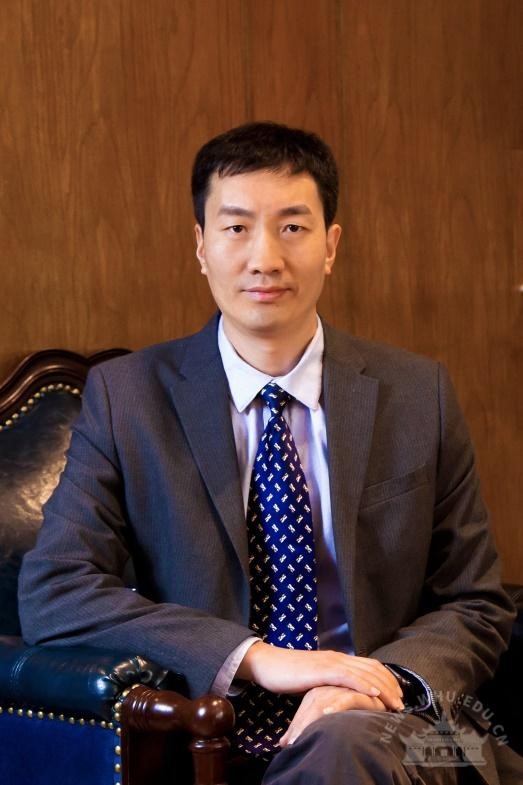On November 18, the results of the 2021 election of the Chinese Academy of Sciences (CAS) and the Chinese Academy of Engineering (CAE) were officially announced with Prof. Zhou Xiang from the College of Chemistry and Molecular Sciences and Prof. Song Baoliang from the College of Life Sciences elected as academicians of the Chinese Academy of Sciences.

Zhou Xiang
Zhou Xiang obtained his bachelor’s and master’s degrees from Wuhan University in 1986 and 1989, respectively, received his doctorate from the Chinese University of Hong Kong in 1996, and conducted postdoctoral research at the University of Virginia and the University of Maryland from 1996 to 2001. He has been a professor of Wuhan University since 2001 and is currently the deputy director of the 3rd Academic Committee of Wuhan University.
Prof. Zhou Xiang has been devoted to the research of nucleic acid chemical biology for a long time, and his main research directions are the function of small molecules for identifying the nucleic acid structure and its regulation, as well as the application of nucleic acid chemistry technology in disease diagnosis and treatment. He developed nucleic acid-targeted drug molecules and major disease diagnosis technology through the identification and functional regulation of nucleic acid structure by small molecules, which has achieved systematic and internationally influential innovative results, and has also promoted the development of nucleic acid chemical biology research. As a corresponding or co-corresponding author, he has published more than 260 papers in journals such as Acc. Chem. Res., Chem. Soc. Rev., Nat. Chem. Biol., Nat. Commun., Sci. Adv., Chem, J. Am. Chem. Soc., Angew. Chem. Int. Ed., Nucleic Acid Res., JACS Au, Cell Chem. Biol. and so on. He also won the first prize of the Hubei Province Natural Science twice (ranking first), and the second prize of the WuXi PharmaTech Life Science and Chemistry Award.
Prof. Zhou presided over the National Natural Science Foundation Fund for Distinguished Young Scholars, the Creative Research Group Project, and the National Basic Research Program of the Ministry of Science and Technology of China (973 Program). He was selected as a candidate for the National Hundred-Thousand-Ten Thousand Talent Project and a fellow of the Royal Society of Chemistry. He was also the director of the Chemical Biology Professional Committee of the Chinese Chemical Society, and serves on the editorial board of several academic journals such as Acc. Chem. and Res.

Song Baoliang
Song Baoliang graduated from Nanjing University with a bachelor’s degree in 1997, and obtained a doctorate degree from the Shanghai Institute of Biochemistry and Cell Biology, Chinese Academy of Sciences (SIBCB) in 2002. From 2002 to 2005, he was engaged in postdoctoral research at the University of Texas Southwestern Medical Center. He served as Principal Investigator and researcher at SIBCB from 2005 to 2014. Since 2014, he has been a professor and dean of the College of Life Sciences, Wuhan University.
Prof. Song Baoliang has been committed to cholesterol metabolism research for a long time and has made a series of important original discoveries, including elucidating the molecular pathway of small intestinal cholesterol absorption, revealing a cholesterol synthesis regulatory pathway, and discovering new pathways and methods of cholesterol transport in cells. These results provided new ideas and a theoretical basis for the research and development of lipid-lowering drugs. As a corresponding or co-corresponding author, he published more than 40 papers in journals, including Nature, Science, Cell. As one of the main leaders in the field of cholesterol research, he was invited to write a long review for Nat RevMolCellBiol. Also, his studies on cholesterol metabolism were selected into the classic textbooks such as Lehninger Principles of Biochemistry, Molecular Cell Biology, Williams Textbook of Endocrinology. In 2015 and 2020, Song’s research was selected as one of the Top 10 Advances in Life Sciences of China, Top 10 Medical Researches in China, and Top 10 Influential Events in the Cardiovascular Field in China”. He was also awarded the Tan Kah Kee Young Scientist Award and China Youth Science and Technology Award, Tan Jiazhen Life Science Innovation Award, the Xplorer Prize, among others.
As the chief scientist of the National Key Research and Development Program and the Innovation Group of the National Foundation of China, and concurrently serves as the vice president of the Chinese Society for Cell Biology and the leader of the expert group of a major research project on “spatiotemporal network regulation of glucose and lipid metabolism” of the National Natural Science Foundation of China, Prof. Song Baoliang is a man of integrity and meticulous in academic research, always willing to cooperate, attaches great importance to personnel training, and has made significant contributions to the study of lipid metabolism in China.
By now, the total number of academicians of CAS and CAE at Wuhan University is 16. Among them are 10 academicians of CAS, namely Li Deren, Deng Zixin, Gong Jianya, Shu Hongbing, Zhu Yuxian, Xia Jun, Xu Hongxing, Dou Xiankang, Zhou Xiang, Song Baoliang, and six academicians of CAE, namely Li Deren, Liu Jingnan, Zhang Zuxun, Mao Zhi, Li Jiancheng and Li Xiaohong.
In 2021, in total 149 people were elected as academicians of CAS and CAE. Among them, 65 were selected by CAS and 84 by CAE. Additionally, there are 25 newly elected foreign academicians of CAS and 20 of CAE. After this year’s election, the total number of academicians of CAS is 860, including 129 foreign academicians, and the total number of academicians of CAE is 971, including 111 foreign academicians.
Source: http://news.whu.edu.cn/info/1002/65959.htm
Rewritten by Zou Wenxue
Edited by Zheng Zicheng, Qin Zehao, Tu Hua